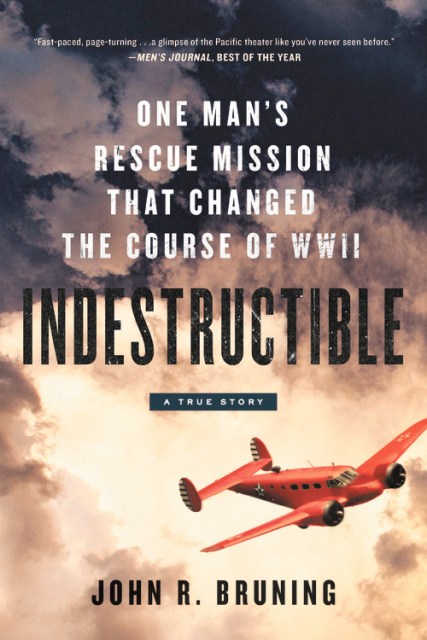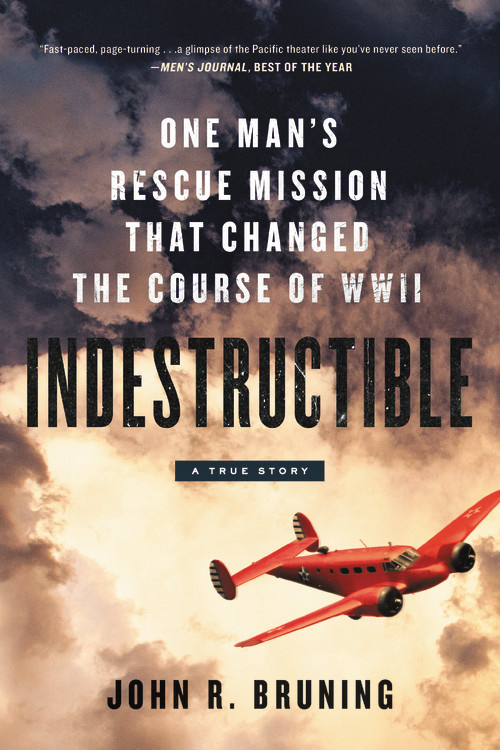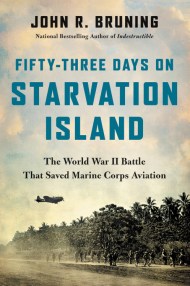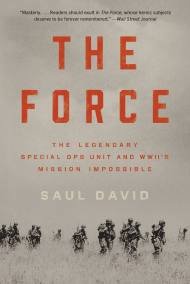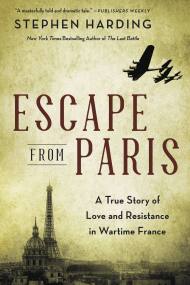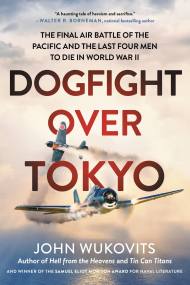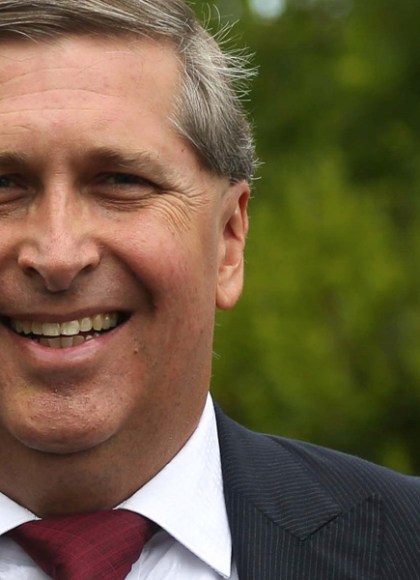By clicking “Accept,” you agree to the use of cookies and similar technologies on your device as set forth in our Cookie Policy and our Privacy Policy. Please note that certain cookies are essential for this website to function properly and do not require user consent to be deployed.
Indestructible
One Man's Rescue Mission That Changed the Course of WWII
Contributors
Formats and Prices
- On Sale
- May 2, 2017
- Page Count
- 560 pages
- Publisher
- Grand Central Publishing
- ISBN-13
- 9780316339414
Price
$21.99Price
$28.99 CADFormat
Format:
- Trade Paperback $21.99 $28.99 CAD
- ebook $9.99 $12.99 CAD
- Audiobook Download (Unabridged) $38.99
This item is a preorder. Your payment method will be charged immediately, and the product is expected to ship on or around May 2, 2017. This date is subject to change due to shipping delays beyond our control.
Buy from Other Retailers:
From the knife fights and smuggling runs of his youth to his fiery days as a pioneering naval aviator, Paul Irving “Pappy” Gunn played by his own set of rules and always survived on his wits and fists. But when he fell for a conservative Southern belle, her love transformed him from a wild and reckless airman to a cunning entrepreneur whose homespun engineering brilliance helped launch one of the first airlines in Asia.
Pappy was drafted into MacArthur’s air force when war came to the Philippines; and while he carried out a top-secret mission to Australia, the Japanese seized his family. Separated from his beloved wife, Polly, and their four children, Pappy reverted to his lawless ways. He carried out rescue missions with an almost suicidal desperation. Even after he was shot down twice and forced to withdraw to Australia, he waged a one-man war against his many enemies — including the American high command and the Japanese–and fought to return to the Philippines to find his family.
Without adequate planes, supplies, or tactics, the U.S. Army Air Force suffered crushing defeats by the Japanese in the Pacific. Over the course of his three-year quest to find his family, Pappy became the renegade who changed all that. With a brace of pistols and small band of loyal fol,lowers, he robbed supply dumps, stole aircraft, invented new weapons, and modified bombers to hit harder, fly farther, and deliver more destruction than anything yet seen in the air. When Pappy’s modified planes were finally unleashed during the Battle of the Bismarck Sea, the United States scored one of the most decisive victories of World War II.
Taking readers from the blistering skies of the Pacific to the jungles of New Guinea and the Philippines to one of the the war’s most notorious prison camps, Indestructible traces one man’s bare-knuckle journey to free the people he loved and the aerial revolution he sparked that continues to resonate across America’s modern battlefields.
-
"This is a beautifully told story of a family separated by war, and of an extraordinary father, driven to avenge his family, who by sheer force of character changed the nature of warfare. A superbly told tale of love, honor, courage and devotion."Alex Kershaw, author of Avenue of Spies
-
"This thriller-like narrative not only reveals the disturbing plight of courageous American families held in Japanese internment camps, but also delivers a gripping portrait of a uniquely American hero, Pappy Gunn, who fought two wars--one for his country and one to rescue his wife and children."James Bradley, bestselling author of Flags of Our Fathers, Flyboys, The Imperial Cruise, and The China Mirage
-
"Paul Irvin Gunn's time in World War II is the stuff of legends - and its fast-paced, page-turning telling in Bruning's book does the man's Herculean feats justice.... The book reads more like an overly-detailed movie script than a work of historical non-fiction, complete with a heart-wrenching love story and heroic conclusion....Indestructible offers a glimpse of the Pacific theater like you've never before seen."Men's Journal
-
"Here is a true story with something for everyone. Love, war, treachery, adventure, and above all an intimate portrait of the made-for-Hollywood life of a man who broke all the rules and remade them to his liking. Finally, we have a book that does justice to the legend of Colonel Paul 'Pappy' Gunn, a giant among heroes of World War II. John Bruning shows us a big-hearted man determined to save his family--and a brilliant scientist-pilot who was determined to win the war along the way."Adam Makos, author of A Higher Call and Devotion
-
"From the opening pages, Bruning grabs you by the collar and pulls you into the story, not letting go as he masterfully guides you through a part of World War II that is largely unknown. This is the work of a skilled wordsmith who knows how to tell a story."Gregory A. Freeman, author of The Forgotten 500
-
"Set against the sprawling and violent Pacific War, Indestructible is the incredible story of one man's courage, tenacity and dogged fight to rescue his family caught behind enemy lines. The book left me with chills."James M. Scott, author of Target Tokyo: Jimmy Doolittle and the Raid that Avenged Pearl Harbor
-
"Bruning's gripping account of 'Pappy' Gunn's mission to save his family might seem to some like over-the-top fiction, but Gunn's rage really did drive changes to tactics and modifications to aircraft that changed the course of the Pacific War... every lover of bigger-than-life-but-still-true tales of wartime heroism will want to read this vividly written history."Booklist, starred review
-
"This is a compelling story with strong characters and a wealth of fascinating incidents, set against some of the fiercest action of the war."Kirkus Reviews
-
"[A] story of honor, faith, endurance and love. Indestructible is a worthwhile read for anyone interested not only in the history of the war in the Pacific but also of determination in the face of daunting odds."Yakima Herald
-
"Fast-paced, sweeping, and often haunting."The Oregonian
-
"It's a massive understatement to say that Pappy Gunn was an American original. In this new book, journalist Bruning looks at the improbable life of the one-of-a-kind Arkansas daredevil pilot who took matters into his own hands when his wife and children were captured by the Japanese in the Philippines."Men's Journal, Best Books of 2016
-
"In INDESTRUCTIBLE, Bruning does a fine job of recounting two parallel storylines, alternating between Gunn's unconventional brilliance in cobbling together aircraft for the defense of Australia and the campaign in New Guinea, and his family's battle against starvation, the Japanese, and-not least-their fellow internees in the notorious Santo Tomas camp."WWII Magazine
Newsletter Signup
By clicking ‘Sign Up,’ I acknowledge that I have read and agree to Hachette Book Group’s Privacy Policy and Terms of Use
